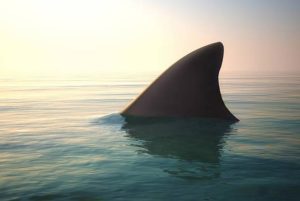
La mortalidad de tiburones por motivo de pesca ha aumentado de 76 millones a 80 millones en sólo un año. Estas cifras se siguen dando pese a la legislación protectora para reducir el corte de aletas.
La revista “Science” ha publicado recientemente, resultados preocupantemente negativos, por investigadores que trabajan para comprender esta tendencia de mortalidad de tiburones. Se han examinado las capturas de tiburones de 2012 a 2019, etapa de tiempo en el que se implementaron muchas regulaciones nuevas con el fin de observar si las medidas de conservación planteadas redujeron las pérdidas de estas especies.
En total, el conjunto de datos rastreó el destino de aproximadamente 1.100 millones de tiburones capturados por pesquerías en todo el mundo. Más del 30% de esta captura corresponde a especies que, actualmente, se encuentran en peligro de extinción. Además, la estimación de mortalidad global aumentó a 101 millones de tiburones en 2019, que provino, en gran parte, de la pesca costera de tiburones.
Todas estas prácticas representan el 95% de la mortalidad total por pesca de tiburones a nivel mundial.
Los investigadores encontraron que las prohibiciones de corte de aletas sí que redujeron el corte de aletas de tiburón en el mar, pero tuvieron poco efecto sobre la mortalidad en general.
Echelle Burns, científica de datos de la Universidad de Caliornia en Santa Bárbara comenta “medidas más específicas que aborden la mortalidad de los tiburones, como prohibir la pesca en ciertas áreas o exigir a los pescadores que liberen especie vulnerables que capturaron accidentalmente, pueden ayudar a proteger más tiburones”.
La pesca de tiburones viene, en parte, motivada por el uso de las aletas para el comercio. En base a esto, existen organizaciones que se movilizan para generar buenas prácticas que, junto con la legislación, pueda cambiar esta situación.
La iniciativa Ciudadana Europea “Stop Finning- Stop the Trade” ha recibido, el 5 de julio de 2023, la respuesta de la Comisión Europea a la solicitud de poner fin al comercio de aletas de tiburón en Europa mediante la aplicación de legislación comercial adicional. Esta iniciativa tiene el apoyo de 100 ONG’s, socio y voluntarios, así como 1.119.996 ciudadanos europeos que enviaron su apoyo verificado.
De esta manera, la norma de “Aletas Naturalmente Adheridas” obliga a que las aletas no se puedan separar del cuerpo del tiburón antes de su desembarco. Para eliminar esta laguna legal, se necesita legislación de comercio adicional, para prohibir la exportación, importación y tránsito de aletas de tiburón sueltas.
Pincha aquí para conocer más sobre esta iniciativa.
__
Fishing mortality of sharks has increased from 76 million to 80 million in just one year. These figures continue despite protective legislation to reduce finning.
The journal “Science” recently published disturbingly negative results by researchers working to understand this trend in shark mortality. They have examined shark catches from 2012 to 2019, a time period in which many new regulations were implemented, in order to see if the conservation measures put in place reduced the losses of these species.
In total, the dataset tracked the fate of approximately 1.1 billion sharks caught by fisheries worldwide. More than 30% of this catch is of species that are currently threatened with extinction. In addition, the estimated global mortality increased to 101 million sharks in 2019, largely from coastal shark fisheries.
All of these practices account for 95% of the total global shark fishing mortality.
The researchers found that finning bans did reduce shark finning at sea, but had little effect on overall mortality.
Echelle Burns, a data scientist at the University of Caliornia in Santa Barbara says “more targeted measures that address shark mortality, such as banning fishing in certain areas or requiring fishermen to release vulnerable species they have caught accidentally, can help protect more sharks”.
Shark fishing is, in part, driven by the use of shark fins for trade. Based on this, there are organisations mobilising to generate good practices that, together with legislation, can change this situation.
The European Citizens’ Initiative “Stop Finning – Stop the Trade” has received, on 5 July 2023, the European Commission’s response to the request to end the shark fin trade in Europe by implementing additional trade legislation. This initiative has the support of 100 NGOs, partners and volunteers, as well as 1,119,996 European citizens who sent their verified support.
Thus, the “Naturally Attached Fins” rule requires that fins cannot be detached from the shark’s body before landing. To close this loophole, additional trade legislation is needed to prohibit the export, import and transit of loose shark fins.
Click here to learn more about this initiative.
__

